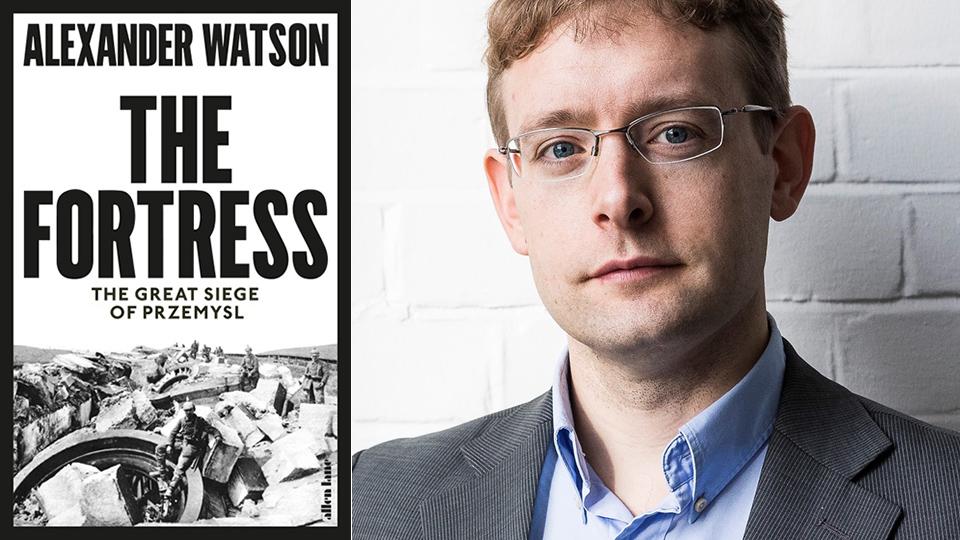Book reveals the siege that changed the course of WWI
Primary page content
The First World War’s longest and most terrifying siege is the subject of a new book from a Goldsmiths, University of London historian.

Described as “vividly written” and “a masterpiece” by The Times, Professor Alexander Watson’s The Fortress: The Great Siege of Przemysl was published on Thursday 17 October 2019 by Allen Lane and immediately entered The Times Best Books of 2019 list.
By the autumn of 1914, Europe’s battling powers had already suffered casualties on a scale previously unimaginable, and improvisation had replaced elaborate war plans on both the Western and Eastern fronts.
The siege which unfolded in 1914-15 at the old, beleaguered Austro-Hungarian fortress of Przemysl, in what is today’s south-eastern Poland, became the longest of the entire war. Pre-war, Przemysl was home to 46,000 people, around a quarter of whom were Jewish and living in ‘brittle harmony’ with Poles and Ukrainians. In attempting to defend the fortress and prevent Russia from invading Central Europe, Austria-Hungary suffered some 800,000 casualties. Yet this great turning point in the conflict is, until now, almost unknown in the West, argues Professor Watson.
The siege changed the entire course of the war, with the time won by the fortress’s defence critical in allowing the Habsburg army to regenerate and prevent an early victory by the Russians.
The Fortress pieces together the story of the siege using the letters and diaries of reservists from the Austro-Hungarian empire who endured the horrors of artillery bombardment, aerial raids and starvation to defend the bulwark against a Russian invasion.
Writing for The Times, critic Lawrence James said: “The vividly written and well-researched The Fortress is a masterpiece… It deserves to become a classic of military history.”
Professor Watson said: “The Fortress reveals the long-forgotten story of how 100 years ago a Russian invasion of Central Europe was only narrowly averted. Had the Russians been successful, the course of our history would have been entirely different.
“The book also makes a major contribution in showing how very early East-Central Europe’s twentieth-century tragedy began. Brutal fighting, strategies of starvation, the aerial bombardment of civilians and vicious ethnic cleansing, especially against Jews, are usually associated with the Second World War and the Holocaust in the 1940s. In fact, all were defining features of the campaign around Przemysl already in 1914.”
Alexander Watson is the Wolfson Prize winning author of Ring of Steel. Germany and Austria-Hungary at War, 1914-1918 (2014). Named Sunday Times History Book of the Year 2014, it also won the Guggenheim-Lehrman Prize in Military History (2014), the Society for Military History's 2015 Distinguished Book Award, and the 2015 British Army Military Book of the Year.
As Professor of History at Goldsmiths, Alexander Watson is chair of the British Journal for Military History’s editorial advisory board and teaches undergraduate and postgraduate modules on nineteenth and twentieth century East-Central European history and the history of modern warfare.